Rated: The Best and Worst Airlines for Cyclists

“Hearst Magazines and Verizon Media may earn commission or revenue on some items through the links below.”
Little about air travel today is easy, especially the fees. According to the Bureau of Transportation Statistics, airline baggage revenue climbed 9.5 percent between 2016 and 2017, and the trend shows little sign of slowing. It’s even harder if you’re flying with a bike, which airlines like Spirit, Frontier, and United like to single out for added charges based on size and bulk.
In all, it’s a long way from the story I once heard about a cyclist who checked his wheels in a box as standard luggage, packed the rest of the bike in a carry-on—bars unbolted and fixed to the frame—and hung it in a coat closet. For one, this was pre-9/11, and these days TSA might look differently at a bike frame going through the x-ray. Second, coat closets are now reserved for first class, if they exist at all. (Third, this tale miiight be an urban legend.)
Why do many airlines count golf clubs and skis as regular checked baggage, but slap bikes with surcharges that can add up to hundreds of dollars each way? Partly because of size: Bike boxes are bulkier than even golf bags, making storage less efficient. But another reason is simply because they can. While some 14 million Americans bike regularly—which compares favorably to ski/snowboard (9 million) and golf (24 million)—we don’t travel with our gear as often, which limits our bargaining power.
The eight major U.S.-based airlines we researched charge bike-specific fees ranging from $0-$150, sometimes in addition to standard bag fees, and may tack on oversize and overweight fees as well. Depending on your carrier and destination, flying with a bike could cost as little as $30 or as much as $300 each way. So if you’re planning a trip, it pays to do your homework. A slightly more expensive ticket on one airline may be worthwhile if another charges hefty bike fees.
A note on bike cases and liability: We strongly recommend soft cases if you’re trying to save money. All hard cases are at the upper range of what airlines allow and will trigger oversize fees. Plus, the cases themselves can weigh 30 pounds or more on their own, meaning you’ll likely incur overweight fees. The flip side is some airlines may require you to sign a damage liability waiver when using a soft case.
In our review, we looked at bag fees, relevant policies, and lost/damaged bag rankings from the U.S. Department of Transportation. We excluded international carriers, vacation carriers like Sun Country, and regionals like Republic that often subcontract for legacy lines. One carrier, Allegiant, does not allow oversize sports equipment at all in checked baggage, so we left it out.
Alaska Airlines was the clear winner, with low fees, straightforward language, and no damage waiver. Ultra low-cost carriers Spirit and Frontier fared poorly, as expected, but the biggest laggard was United, which is expensive, has opaque policies, and peremptorily denies liability unless a bike is in a hard case (which all but guarantees surcharges). Here are fees and notable policies on traveling with a bike from eight major domestic carriers, rated best to worst.
Airline Rankings
1) Alaska Airlines
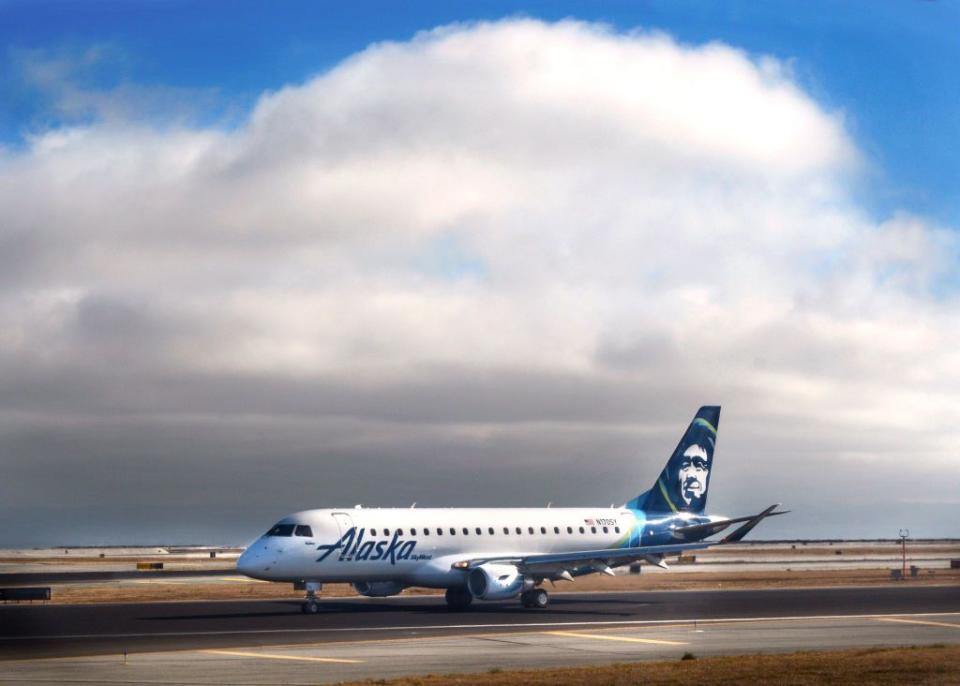
Standard/max size: 62/115 inches
Standard/max weight: 50/100 pounds
Standard bag fees (1st/2nd/3rd): $30/$40/$100
Bike fee: None
Oversize fee: None
Overweight fee: None
Release form: No
Lost/damaged (per 1,000 bags): 2.67
Total cost: $30
2) Delta Air Lines
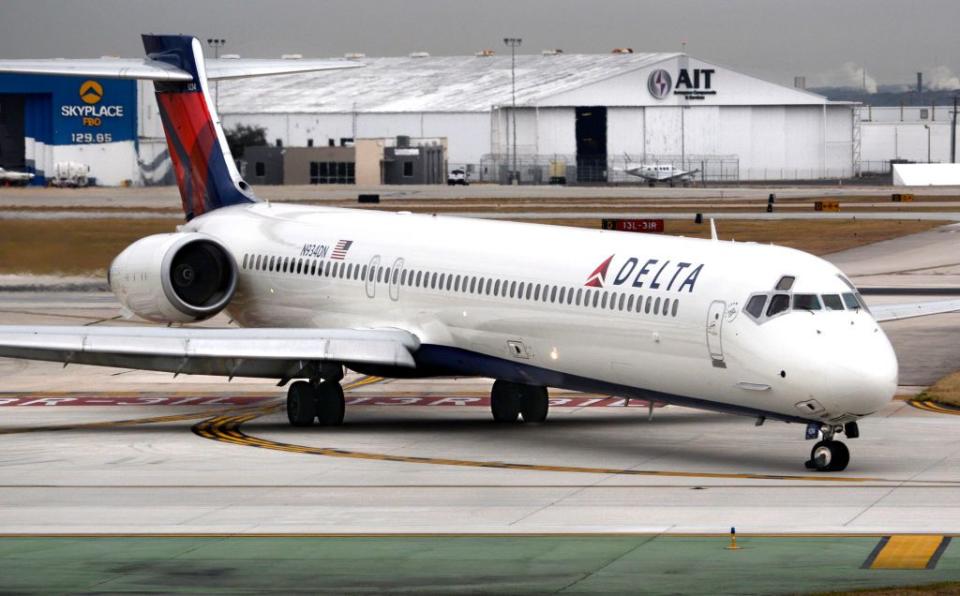
Standard/max size: 62/115 inches
Standard/max weight: 50/100 pounds
Standard bag fees (1st/2nd/3rd): $30/$40/$150
Bike fee: None
Oversize fee: None
Overweight fee: Yes: $100 (51-70 pounds); and $200 (71-100 pounds)
Release form: Yes (for soft cases)
Lost/damaged (per 1,000 bags): 1.75
Total cost: $30 (for under 50 pounds)
Update: These numbers reflect a change in Delta Airlines policy as of July 18, 2019, when the company stopped charging a $150 fee for bicycles as oversize sports equipment, and instead started charging the same as a first standard bag ($30). Bikes over 50 pounds will incur overweight fees of $100 or $200, depending on weight.
3) American Airlines
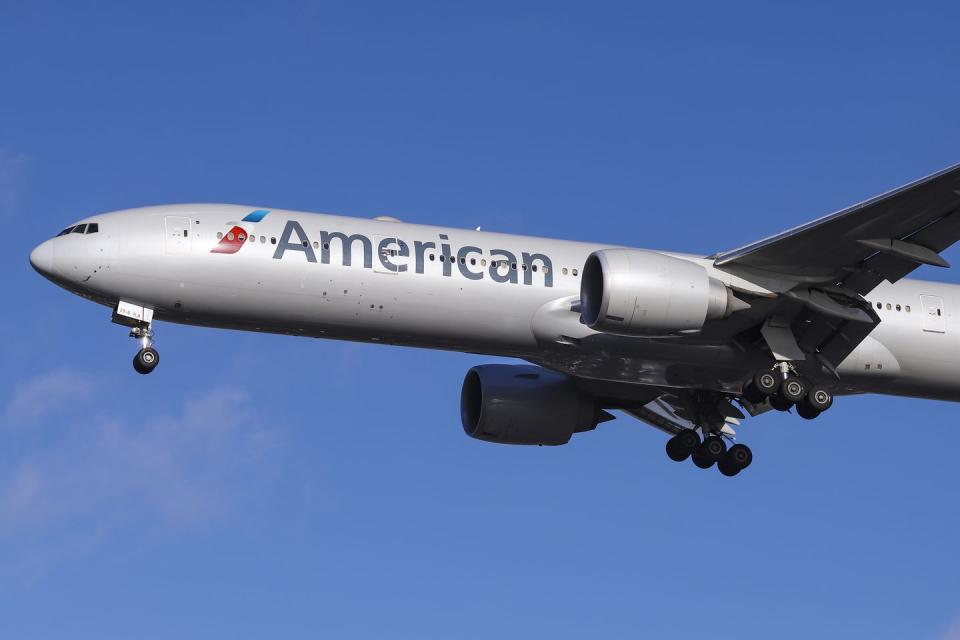
Standard/max size: 126 inches
Standard/max weight: 50/70 pounds
Standard bag fees (1st/2nd/3rd): $30/$40/$150
Bike fee: $30
Oversize fee: None
Overweight fee: $150 (51-70 pounds)
Release form: No
Lost/damaged (per 1,000 bags): 3.39
Total cost: $30-$150
Update: These numbers reflect a change in American Airlines policy as of May 21, 2019, when the company stopped charging a $150 fee for bicycles as oversize sports equipment, and instead started charging the same as a first standard bag ($30). Bikes over 50 pounds will continue to incur a $150 fee.
4) Southwest Airlines
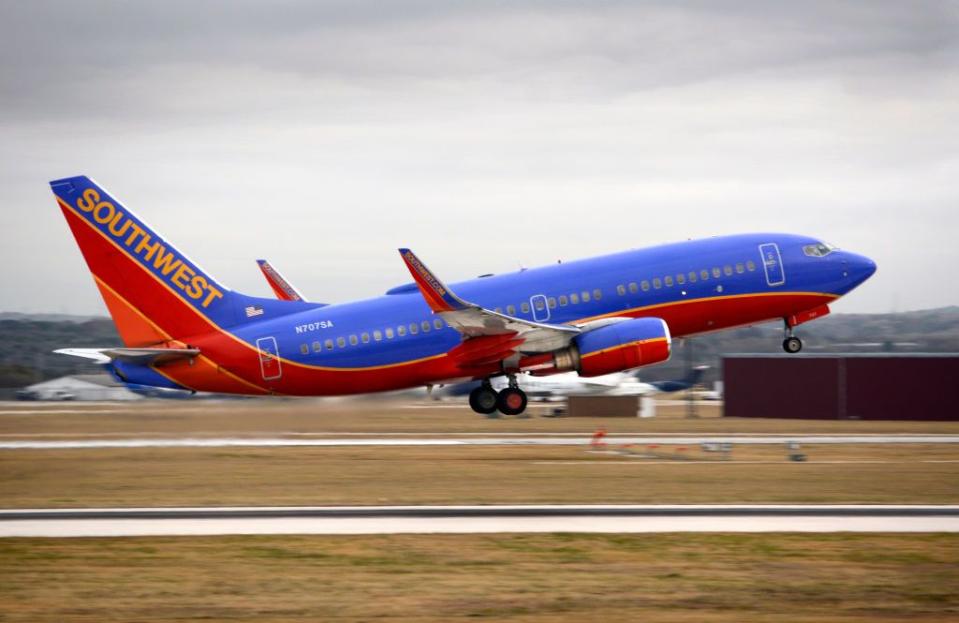
Standard/max size: 62/80 inches
Standard/max weight: 50/100 pounds
Standard bag fees (1st/2nd/3rd): None (2 bags free)
Bike fee: None
Oversize fee: $75
Overweight fee: None
Release form: Yes (for soft cases)
Lost/damaged (per 1,000 bags): 2.66
Total cost: $75
5) JetBlue
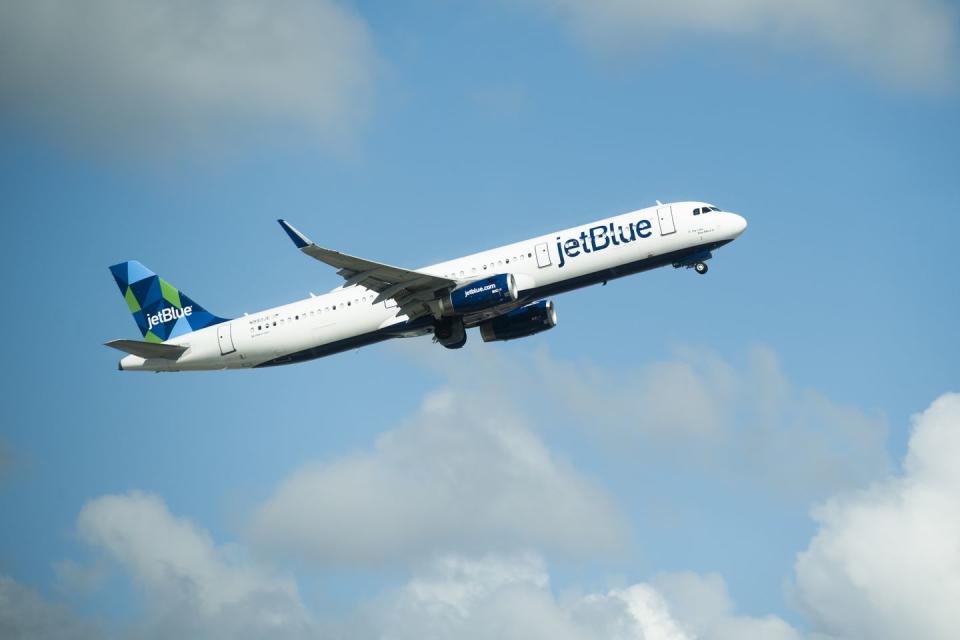
Standard/max size: 62/80 inches
Standard/max weight: 50/99 pounds
Standard bag fees (1st/2nd/3rd): $30/$40/$150
Bike fee: $100 (in addition to bag fee)
Oversize fee: None
Overweight fee: None
Release form: No
Lost/damaged (per 1,000 bags): 1.63
Total cost: $130
6) Frontier Airlines
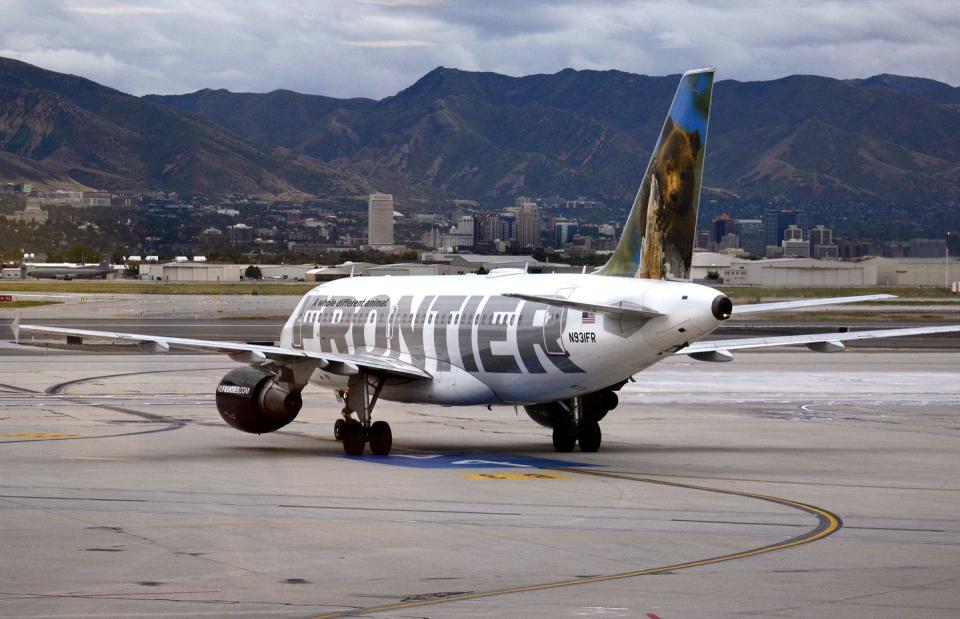
Standard/max size: 62/109 inches
Standard/max weight: 50/100 pounds
Standard bag fees (1st/2nd/3rd): $30-$95
Bike fee: $75
Oversize fee: $75
Overweight fee: $75
Release form: No
Lost/damaged (per 1,000 bags): 2
Total cost: $150-$225
7) Spirit Airlines

Standard size: 62 inches (max size unavailable)
Standard/max weight: 40/100 pounds
Standard bag fees (1st/2nd/3rd): $28-$100
Bike fee: $75
Oversize fee: $100 (63-80 inches)/$150 (80-plus inches)
Overweight fee: $30 (41-50 pounds)/$55 (51-70 pounds)/$100 (71-100 pounds)
Release form: Yes (all cases)
Lost/damaged (per 1,000 bags): 1.62
Total cost: $175-$325
8) United Airlines
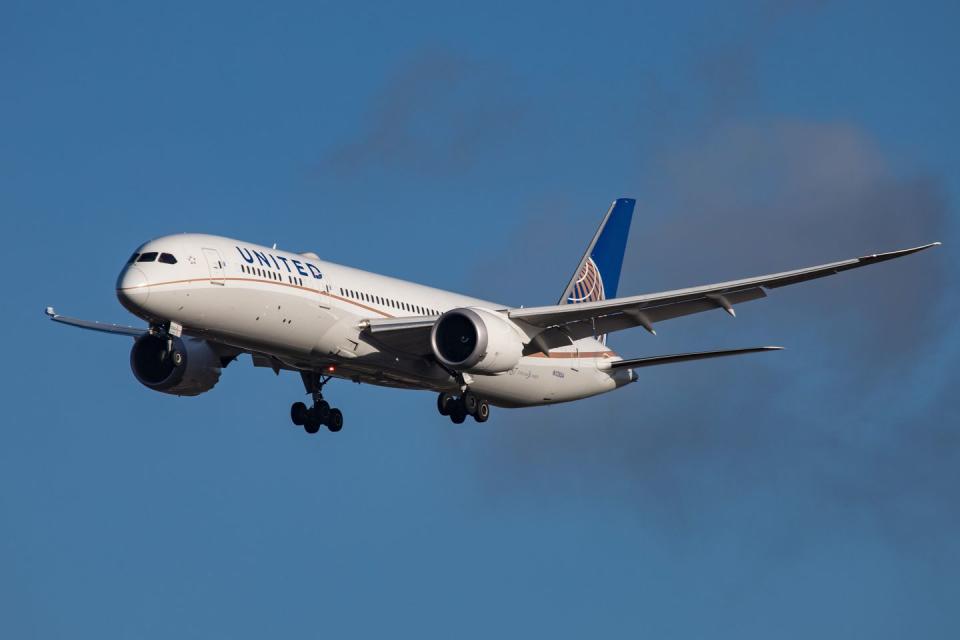
Standard/max size: 62/115 inches
Standard/max weight: 50/100 pounds
Standard bag fees (1st/2nd/3rd): $30/$40/$150
Bike fee: None
Oversize fee: $200
Overweight fee: $100 (51-70 pounds)/$200 (71-100 pounds)
Release form: No (airline liable only for hard cases)
Lost/damaged (per 1,000 bags): 2.33
Total cost: $230-$550
Prices are for domestic travel each way and assume a bike box of over 62 linear inches. International flights may vary. Fees and policies are current as of February 1, 2019, and may change without notice.

Tips for Beating Bag Fees
Be a Jet-Setter
If you fly more than 50,000 miles a year on one carrier, join its mileage rewards program—even if you rarely bring your bike. Once you reach gold or higher status, you get special check-in counters, higher limits on the number and size of your bags, and even waived bag fees. Several frequent flyers we spoke with said their airline status has helped them avoid bike fees almost entirely.
Get Flight-Friendly Bikes and Cases
If you want to travel regularly with your bike, consider a model that folds, like a custom frame with S&S couplers or a Ritchey Break-Away design. Both pack down to fit standard airline luggage dimensions. Ritchey framesets, with a case, start around $1,900; a custom with S&S couplers will cost more. But if you fly with a bike five times a year, you could make that money back on saved fees in just 2-3 years.
Another option is to get a soft-side bike case that’s smaller than conventional travel cases. Oru Case’s Airport Ninja ($500) is technically just over the checked-bag size limits for all airlines we researched, but only by a little. Many Ninja owners report not being charged bag fees. And the company’s Sub62 ($549) does fit airline regulations, as does Ritchey’s Break-Away case ($300).
Pick Your Departure and Destination Carefully
Agents at smaller airports that don’t handle lots of oversize luggage don’t always charge fees, says retired mountain bike national champion Adam Craig, who estimates he averaged 70,000 miles a year flying out of his home airport in Bend, Oregon, as a pro. If you can fly out of a smaller airport, he says, “it’s suddenly fiscally responsible to spend $75 more on a ticket to save $175 on baggage fees.”
In terms of destination, international fees are often higher than domestic. Some carriers have seasonal bans on oversize baggage for certain routes, like to and from Latin America. And check your aircraft—regional jets have smaller holds and may not be able to take bikes all the time.
The Artful Dodge
A number of carriers assess bike-specific charges, whatever the case size. “As soon as you say anything that has to do with a bike, you’re done,” former pro racer Tim Johnson says. Instead, he replies “exercise equipment” when asked what’s in the bag. To make this work, avoid cases with obvious bicycle hints and don’t give away the game by clipping your helmet to your carry-on. Bear in mind: If your bike gets damaged and wasn’t declared as a bike, you might forfeit liability reimbursement.
Ship It
If you can live without it for a few days, it may be cheaper to simply ship your bike. BikeFlights offers bike shipping worldwide, and can handle everything from the logistics of pickup and delivery to hiring a pro to pack your bike for you. It takes longer, but for domestic travel especially, it may be a wiser approach.
Rent It
If you’re taking a vacation with a touring company, look into its rental fleet; many now have high-end racing bikes available. Bike shops at your destination may also have rental fleets. If you join the Rapha Cycling Club ($200 per year), you’re eligible to rent a high-end Canyon road bike for up to three days at just $25 a day from one of its 22 Clubhouse locations in the U.S., Europe, and Asia. In any of these situations, be sure to reserve in advance, and don’t forget your shoes and pedals.
You Might Also Like
